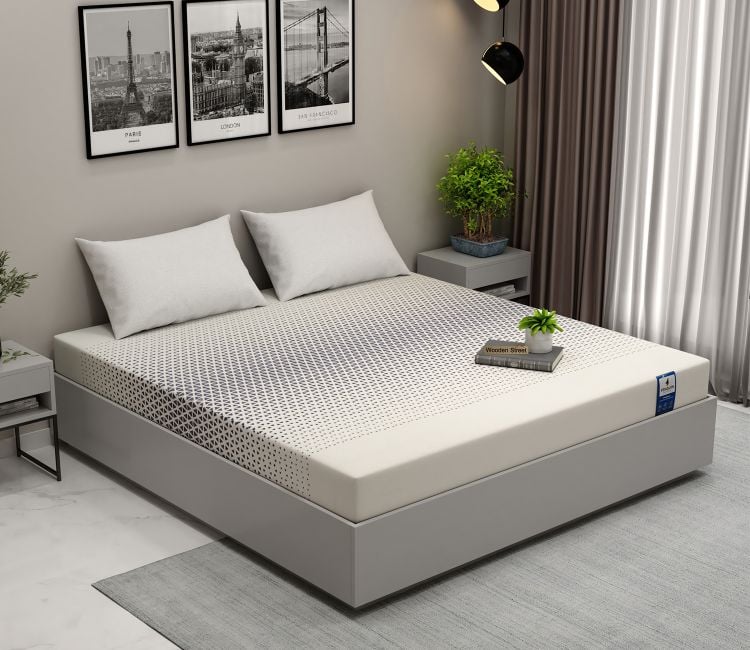How Often Should You Replace Your Mattresses for Optimal Sleep?

Strong 8k brings an ultra-HD IPTV experience to your living room and your pocket.
Getting a good night's sleep is fundamental to our overall health and well-being. While many factors contribute to sleep quality, one often-overlooked element is the condition of your mattresses. An old or worn-out mattress can significantly impact your sleep, leading to discomfort, pain, and even health issues. So, how often should you really replace your mattresses? Let's delve into the factors that determine the lifespan of your mattresses and help you decide when it's time for a new one.
Understanding the Lifespan of Your Mattresses
There isn't a one-size-fits-all answer to how long mattresses last. Several factors influence their durability and longevity. The general recommendation from sleep experts is to replace your mattresses every 6 to 8 years. However, this is just a guideline, and the actual lifespan can vary depending on several key aspects:
Mattress Type and Quality: Different types of mattresses have varying lifespans. For instance, high-quality latex or memory foam mattresses tend to last longer than traditional innerspring mattresses. The materials used in construction and the overall craftsmanship play a significant role in durability.
Usage and Weight: How frequently the mattresses are used and the weight it supports can affect its wear and tear. A mattress used daily by a heavier individual will likely degrade faster than one used occasionally in a guest room by a lighter person.
Care and Maintenance: Proper care can significantly extend the life of your mattresses. Regularly rotating and flipping (if applicable) your mattress, using a mattress protector, and vacuuming it to remove dust and allergens can help maintain its support and comfort.
Signs It's Time to Replace Your Mattresses
While the 6-to-8-year guideline is helpful, paying attention to the signs of wear and tear is crucial in determining when to replace your mattresses. Here are some telltale indicators:
- Visible Sagging or Indentations: If you notice visible dips or sags in your mattress, especially in the areas where you typically sleep, it's a clear sign that the support layers have broken down. This can lead to uneven weight distribution and discomfort.
- Increased Aches and Pains: Waking up with stiffness, back pain, neck pain, or sore joints that improve throughout the day could indicate that your mattress is no longer providing adequate support and spinal alignment.
- Lack of Comfort and Restlessness: If you find yourself tossing and turning more frequently and struggling to get comfortable, your mattress might be losing its ability to provide the necessary cushioning and support for restful sleep.
- Allergy Flare-Ups: Over time, mattresses can accumulate dust mites, allergens, and mold, even with regular cleaning. If you experience increased allergy symptoms or respiratory issues, your old mattress could be the culprit.
- Noisy Springs: Innerspring mattresses can start to make squeaking or creaking noises as the coils lose their integrity. This can be disruptive to your sleep and a sign of wear.
- You've Had It for More Than 8 Years: Even if you don't notice significant signs of wear, the materials in your mattress degrade over time, losing their ability to provide optimal support and hygiene. Consider replacement after the 8-year mark.
Choosing New Mattresses: Factors to Consider
When it's time to replace your old mattresses, consider these factors to make an informed decision:
Sleeping Position: Your preferred sleeping position (side, back, or stomach) will influence the type of mattress that provides the best support and pressure relief.
Firmness Level: Mattresses come in various firmness levels, from plush to extra-firm. The ideal firmness depends on your sleeping position, body weight, and personal preference.
Mattress Type: Explore different mattress types like innerspring, memory foam, latex, hybrid, and airbeds to find one that suits your needs and budget.
Budget: Mattresses range in price significantly. Determine your budget beforehand and research options within that range.
Trial Period and Warranty: Look for mattress companies that offer a sleep trial period, allowing you to test the mattress at home and return it if it's not a good fit. A good warranty also indicates the manufacturer's confidence in their product.
Certifications: Consider mattresses with certifications like CertiPUR-US, which ensures the foam is made without harmful chemicals.
Investing in Quality Mattresses for Better Health
Replacing your mattresses is an investment in your health and well-being. A supportive and comfortable mattress can significantly improve your sleep quality, reduce pain, and enhance your overall quality of life. By understanding the lifespan of mattresses, recognizing the signs of wear and tear, and carefully considering your needs when choosing a new one, you can ensure you're getting the restful sleep you deserve. Don't underestimate the impact of your mattresses on your health – prioritize replacing them when the time is right.
Note: IndiBlogHub features both user-submitted and editorial content. We do not verify third-party contributions. Read our Disclaimer and Privacy Policyfor details.







